The philanthropic community has been ‘conspicuously absent from the SDG debate’, according to Kevin Watkins of the UK’s Overseas Development Institute, writing in the March 2015 issue of Alliance. However, as he suggests, the Sustainable Development Goals (SDGs), which will take final shape later this year, are likely to have a significant influence on the environment in which foundations operate. We asked a number of people from different regions why foundations should take the SDGs seriously, and how their influence is likely to make itself felt on their work both domestically and internationally. Their response suggests that, even if they haven’t been part of the SDG debate so far, at least some foundations have been listening and thinking.
Patricia Frias of Italy’s Fondazione Cariplo proposes a possible reason for foundations’ limited contribution to the debate so far: ‘in times of crisis foundations are often called to help and focus on their communities’ needs; and this “contingency grantmaking” prevails, even only provisionally, over medium- to long-term grantmaking strategies.’ She also believes that foundations ‘that operate mostly at local level didn’t perceive their contribution to the global dialogue as fundamental’.
While she feels ‘a more extensive contribution by foundations to the debate about the SDGs would certainly have been desirable’, in Frias’s view ‘their contribution will be even more important with respect to “how” the post-2015 agenda can be effectively implemented at global and local level’.
This is why, jointly with the European Foundation Centre, Fondazione Cariplo organized a Consultation on the Role of and Opportunities for Foundations in Localizing the Post-2015 Agenda in Milan last September. The main recommendations coming out of this event can be summarized in two phrases, she says:‘Their contribution will be even more important with respect to “how” the post-2015 agenda can be effectively implemented at global and local level.’ Patricia Frias
‘Think global and act local.’
‘If you want to go fast, go alone; if you want to go far, go together.’
‘A much improved participatory process’
Philanthropic institutions may or may not have held generally aloof from the process of devising the SDGs, but many of our respondents felt positive about the process. Comparing them with the Millennium Development Goals, Edmund Cain of the US’s Conrad N Hilton Foundation speaks of a ‘much improved participatory process’. He sees this as the furthest point of a long process: ‘“Silo busters” have infiltrated the insular worlds of academia, the UN, philanthropy, government and the private sector.
We are beginning to speak a common language and the MDGs and SDGs have facilitated that conversation.’
Ana Toni of GIP in Brazil also notes that ‘the process of debate and construction of the Brazilian position on the SDGs has been much more participatory than with the MDGs’. Brazilian foundations have been more closely involved in developing the Brazilian position, and ‘this enhances the likelihood of making the SDGs a more relevant platform for Brazilian foundations’.
The opportunity for collaboration
Most of our respondents don’t see the SDGs as suggesting different areas of work – with 17 goals and 169 objectives, pretty well everything is covered – so much as refinements to existing ones or opportunities to converge their efforts with those of others. The existence of a common development agenda is seen as significant. One of the strongest themes to emerge from the responses to our survey is the need for collaboration among those involved in development and the opportunities the SDGs offer for such collaboration.
‘If the SDGs provide the global mileposts that define success in meeting the defining challenge of our generation,’ says Cherie Nursalim, vice chairman of GT Group and chairman of UN Sustainable Development Solutions Network Southeast Asia, ‘it is for the collaborative actions of all partners in the global community to contribute towards the road map that will take the world to these mileposts.’ The goals must be ‘co-owned, if not co-created, by all elements of the global community’.
Marcos Neto of UNDP notes that ‘one of the key elements of the post-2015 development agenda is catalysing global solidarity for sustainable development. This means that only through collective efforts of all development actors is success feasible.’
Rana Kotan of the Sabanci Foundation in Turkey notes that ‘achieving substantial progress on the SDGs requires collective action instead of individual efforts’, while Ana Toni agrees that ‘using the SDG framework and forum may help foundations to avoid fragmentation and foster complementarity, which per se would increase their effectiveness’. She continues: ‘The SDGs are above all a platform to help foundations, together with governments, international cooperation agencies and the private sector, to better coordinate their actions.’
Akwasi Aidoo, founding director of TrustAfrica until October 2014, also cites collaboration as a reason for foundations to take the SDG agenda seriously. They missed the boat with the MDGs, he thinks, and this is another opportunity ‘to achieve greater impact and scale through collaboration and learning across sectors’.
Concretely, the SDGs have spawned the development of platforms to facilitate collaboration. One of these is the Post-2015 Partnership Platform for Philanthropy which, says Edmund Cain, ‘is being piloted in five countries and supported by a few foundations, including the Hilton Foundation.’ (See Heather Grady’s article in the March issue of Alliance to learn more about this.)
One of the main issues with the MDGs was that foundations didn’t know who else was in the space they were working in – which made collaboration very difficult. As part of the Post-2015 Partnership Platform, Foundation Center is building the SDGfunders.org data portal, which will display foundation funding alongside OECD funding and other development indicators and enable foundations to share information on a regular basis.
Finding the right role for foundations
However, cautions Ana Toni, ‘the attempt to coordinate should not curtail one of foundations’ main assets, which is their freedom to take risks, to explore new frontiers, to support NGOs that challenge the status quo.’ Sustainability is ‘not a technical problem’; it is ‘a complex system of power relations which involves the tension of different social, political and economic players in our societies’. The framework the SDGs offer should not be allowed to obscure or simplify the complexities underlying each goal and objective.
Marcos Neto also notes the potential significance of foundations’ capacity for independent action: ‘Foundations are risk takers, innovators, nimble and responsive, with the capacity to commit for the long term. These are all elements that will be needed in the SDGs’ implementation.’
‘Collaborative activity is essential,’ believes Cherie Nursalim because it recognizes the advantages each sector has. And what advantage do foundations have? ‘Philanthropic institutions can be an incubator of practical solutions and knowledge sharing, including through collaborations across the sectors. The SDSN-SEA workshop on sustainable energy and deep decarbonization is an example.’
Rana Kotan, too, argues for a foundation role in helping to create collaborations, rather than just participating in them: ‘foundations can build alliances between private sector, civil society, academia and government to identify and implement innovative solutions to social problems’, thus contributing to the achievement of the SDGs ‘in line with their programmatic priorities’.
Patricia Frias feels that both roles – convener and innovator – could be important in achievement of the SDGs: ‘autonomy, flexibility and appetite for risk and innovation. These features allow foundations to have a long-term, strategic, helicopter view and perform the role of a convener and agenda developer, giving more visibility to the issue. Moreover, foundations can work on a variety of levels – policy, practice, advocacy.’
Keeping the record straight
Rana Kotan also sees a role for philanthropy in helping to make governments – whom she sees as being the major instrument for implementing the SDGs – accountable for that implementation by making grants to watchdog CSOs. They can also take a convening role, bringing together other sectors to create ‘a reliable data collection system’ to measure the implementation and effect of the SDGs. Patricia Frias echoes this, citing ‘investment in documenting and sharing good practices’ and ‘providing and supporting data and evidence gathering’ as a role for foundations in achieving the SDGs.
How much will the SDGs affect foundations’ work?
‘The SDGs will dismantle the typologies of nations as we know them,’ says Marcos Neto. While it is true that the SDGs are revolutionary in the fact that they apply equally to so-called developed and developing countries, none of our respondents see them leading to a dramatic change in foundation priorities – largely because, with their 17 goals and 169 objectives, the SDGs are bound to coincide with most foundations’ existing interests at some point. As Patricia Frias notes, they embrace ‘such a variety of areas that at least one is most likely an area of intervention of foundations’.
But how will a set of precepts that are conceived as having universal application determine the work of foundations locally? For African foundations, thinks Akwasi Aidoo, the SDGs won’t mean a change of programme area – most African foundations already cover the areas set out in the SDGs – but they will offer an opportunity to redefine their strategies. ‘They offer African foundations a basis for holistic strategies in the sense that they would be able to more easily connect the service provision and policy levels of work needed for sustainable and scalable change as well as collaborating with other donors.’ African foundations can also ‘help shape the implementation design of the SDGs by sharing their deep and comparative understanding of local contexts and the development landscape’.
Patricia Frias is not sure ‘whether the new agenda will massively influence the focus of foundations’ grantmaking strategies’ – Fondazione Cariplo, she says, has long been committed to ‘the integration of social, environmental and economic agendas, stressing the importance of sustainable approaches and solutions in many key areas covered by the proposed SDGs’.
However, she suggests that what the SDGs will do is provide foundations with ‘performance/effectiveness indicators in the areas covered by the post-2015 agenda’. She also notes general agreement among foundations that they should become stronger players in the advocacy and policy fields and believes that ‘the agenda may work both as stimulus and as support for these purposes’.‘Foundations are risk takers, innovators, nimble and responsive, with the capacity to commit for the long term. These are all elements that will be needed in the SDGs’ implementation.’ Marcos Neto
In Turkey, while the Sabanci Foundation has its own programme priorities based on national needs, Rana Kotan foresees the SDGs forming ‘a strong anchor for the foundation while implementing these strategies, because most of the projects we support have a direct or indirect impact on the achievement of the SDGs’. She cites goals 4 (quality education for all) and 5 (gender empowerment and equality of women and girls) as areas in which the foundation is already contributing significantly.
She also cites education as an area of potential collaboration in the service of the SDGs: ‘One area where collaboration among Turkish foundations could make a real difference is education. If foundations can agree on a common set of principles and align reporting standards, this collaboration could potentially work. Sabanci Foundation would be open to engage in discussions with other Turkish foundations.’
What about domestic grantmaking in developed countries?
‘The challenges of poverty, quality education, and quality health care are universal challenges that are directly related to our [Hilton Foundation’s] more focused domestic programme efforts,’ says Edmund Cain. He offers Home for Good as an example that illustrates how the SDGs might affect domestic grantmaking in developed countries and harks back to philanthropy’s convening role.
The Home for Good initiative in Los Angeles has brought ‘government, philanthropy and the private sector together in a coalition to end veterans’ homelessness in Los Angeles by the end of this year and to end chronic homeless in LA altogether by the end of 2016’.
Ana Toni points out that some of the goals apply more forcibly to developed countries, for example those relating to climate change and sustainable consumption patterns.
However, David Cutler of the UK’s Baring Foundation has doubts about applying a set of principles that are intended to be universal in a domestic setting: ‘I have a nagging doubt as to how seriously a UK Government is going to take the issue of universality of the SDGs for domestic agendas.’ Setting aside the fact that governments are already saying how difficult it would be to monitor such a broad agenda, he notes that ‘where we already have universal reporting mechanisms, for instance on child rights, any critical observation by UN officials on our performance is generally greeted by intense irritation and then dismissed. Would this be any different?’
Shaping the work of northern foundations in the South
Akwasi Aidoo believes that the SDGs should also inform the work of overseas grantmakers in Africa because the goals and targets ‘capture the full spectrum of the transformational and development imperative of sub-Saharan Africa’. Moreover, there is a sense of ownership rather than imposition in the region: ‘all the governments here were actively and enthusiastically engaged in the process that produced the SDGs, and sub-Saharan African civil society organizations also played an important role in the process … The SDGs offer an exciting level playing field for foundations from both the Global North and South to focus on globally shared priorities in ways that avoid the distracting perceptions and accusations of foreign imposition, neo-colonialism and dependency.’
Marcos Neto points to the importance of the relationships northern foundations have developed with their grantees: ‘International NGOs, grassroots civil society organizations and social enterprises … The SDGs have the potential to provide all of us with a common language, set of data and entry points.’ This, he believes, will permit more strategic interventions with greater impact ‘from northern foundations in the Global South’.
David Cutler is more cautious. He agrees that the SDGs seem set to ‘shape the next chapter of international development in the way that the MDGs did’. However, he finds it hard to see just where and how an individual foundation’s work will fit into the overall schema. His foundation will be pursuing LGBTI rights in Africa as its new focus. ‘It is extremely welcome that the Secretary General’s Synthesis Report includes LGBTI rights under justice.’ How much of a priority this will be is debatable, he thinks, but he concedes that it will be ‘a very welcome opportunity for leverage if LGBTI rights makes it into the final SDGs in a legible way’.
As he also very pertinently notes, ‘we haven’t even got there yet.’ The SDGs won’t take on their final form until September. Whatever that form is, though, and however muted their voice in the evolution of them, our mini-survey suggests that foundations see in them both the means and the opportunity to concert their efforts with those of others and a larger frame within which to set (and if necessary revise) their own programmes in pursuit of what Kevin Watkins called ‘the defining challenge or our generation’.
Alliance would like to thank the following for contributing to this article:
Akwasi Aidoo, Humanity United, Senegal
Edmund Cain, Conrad N Hilton Foundation, USA
David Cutler, Baring Foundation, UK
Patricia Frias, Sonia Cantoni and Elena Jachia, Fondazione Cariplo, Italy
Rana Kotan, Sabanci Foundation, Turkey
Marcos Neto, UNDP
Cherie Nursalim, UN Sustainable Development Solutions Network Southeast Asia, Indonesia
Ana Toni, GIP – Public Interest Management, Research and Consultancy, Brazil
Andrew Milner is Alliance associate editor. Email am@andrewmilner.free-online.co.uk
Caroline Hartnell is editor of Alliance.
Lead photo by James Cridland.

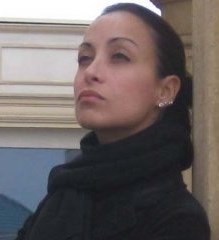
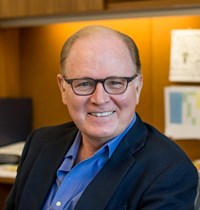
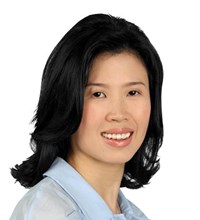
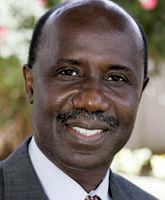
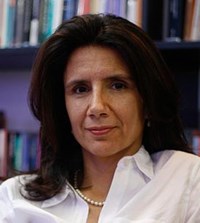
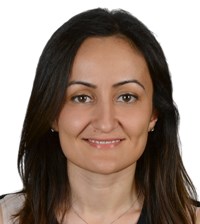

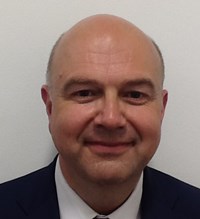



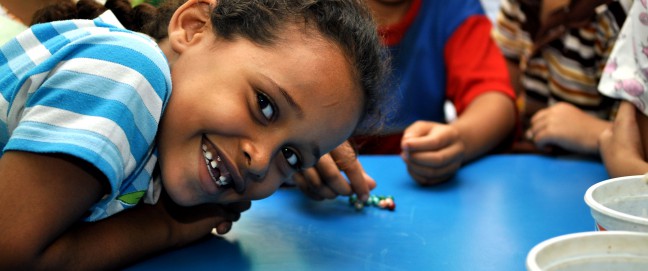
Comments (0)